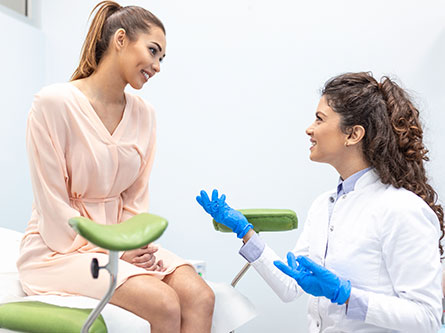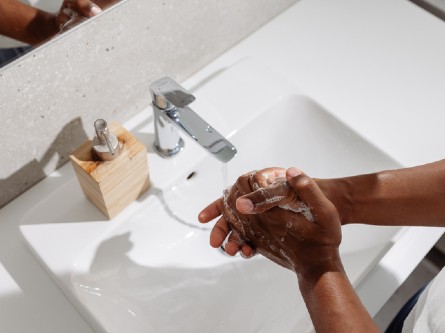Cervical cancer used to be one of the most common causes of death for American women, according to the American Cancer Society. Thanks to an increase in screening, the number of women dying from cervical cancer has dropped by a lot.
Through regular screening and follow-up, cervical cancer can be prevented or detected at an early stage. This can lead to excellent survival. However, most cervical cancers are found in women who have never had a test, or it's been a while since they were screened.
Our experts share basic information on cervical cancer and why it's important to get regular cervical cancer screenings.
What is cervical cancer?
Cervical cancer starts in the cervix, which connects the uterus to the vagina. It usually develops slowly over time. Cervical cancer is almost always caused by human papillomavirus (HPV) infection. It most often shows up in women older than 30.
The American Cancer Society estimates that in 2023 in the U.S., there will be nearly 14,000 cases of invasive cervical cancer diagnosed. About 4,310 women will die.
The HPV vaccine for adolescents, both male and female, can help prevent cervical and other cancers.
Early detection of cervical cancer through screening can allow for treatment, leading to a good quality of life.
Learn more about cervical cancer from UC Davis Health
How is cervical cancer diagnosed?
Regular pelvic exams, Papanicolaou (Pap) tests and/or HPV tests help find abnormal cells in the cervix before cancer develops.
Learn more about cervical cancer and treatment at UC Davis Comprehensive Cancer Center
When should I start getting screened for cervical cancer?
The timing of cervical cancer screenings and the type of test you should get depend on your age and health history. Below are recommendations developed by several organizations, including the American Cancer Society:
- Ages 21-29: It's recommended that women in this age group get their first Pap test at age 21. This should be followed by a Pap test every three years. Even people who are sexually active do not need a Pap test before age 21.
- Ages 30-65: Women in this age group should get screened for cervical cancer using one of the following methods:
- HPV test every 5 years
- HPV/Pap co-test every 5 years
- Pap test every 3 years
- Ages 65 and older: If you're in this age group, talk with your health care provider to see if screening is still needed. If you've been screened regularly and had normal results, you will likely be advised that you don't need screening. If your recent test results were abnormal or you haven't been screened regularly, you may need to continue screening.
The Center for Disease Control and Prevention's (CDC) National Breast and Cervical Cancer Early Detection Program offers breast and cervical cancer screenings to women who have low incomes and are uninsured or underinsured.
See why this study found an increase in women 65 and older dying of cervical cancer
Find out if you're eligible for free or low-cost screenings
Why is it important to get regular cervical cancer screenings?
Health experts recommend regular screenings for cervical cancer because if found early, cervical cancer is very treatable. Screenings can lower a person's chances of dying from cervical cancer.
Are there any signs or symptoms of cervical cancer that I should watch for?
There are typically no noticeable signs of early cervical cancer. Possible signs of cervical cancer can include vaginal bleeding and pelvic pain. However, other conditions may cause these same symptoms. Consult a doctor if any of the following problems occur:
- Vaginal bleeding
- Unusual vaginal discharge
- Pelvic pain
- Pain during sexual intercourse
Who is at increased risk for cervical cancer?
Cervical cancer occurs most often in women over age 30. Long-lasting infection with certain types of HPV is the main cause of cervical cancer. HPV is very common and usually goes away on its own without causing any symptoms. However, if it doesn't, over time it can cause cancer.
Other things that can increase your risk of cervical cancer include:
- having human immunodeficiency virus (HIV) or another condition that suppresses your immune system
- smoking tobacco
What can I do to help prevent cervical cancer?
There are a few things you can do to help reduce your risk of cervical cancer, including:
- Get an HPV vaccine if you're age 26 or younger, if you haven't already.
- Don't smoke.
- Use condoms during sex. (While its unknown if latex condoms are effective at preventing HPV, they are associated with a lower rate of cervical cancer, according to the CDC.)




